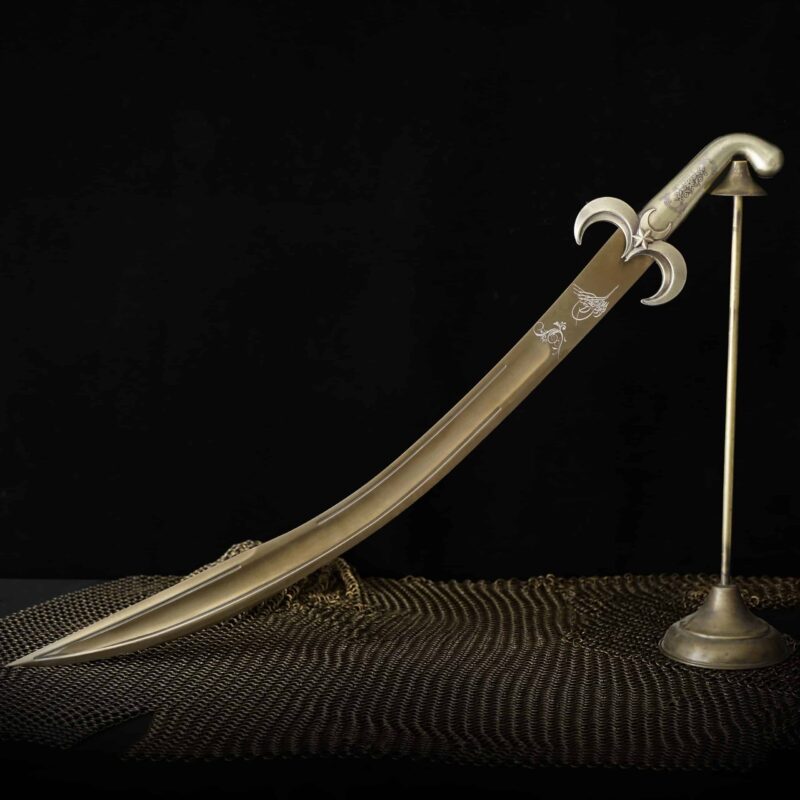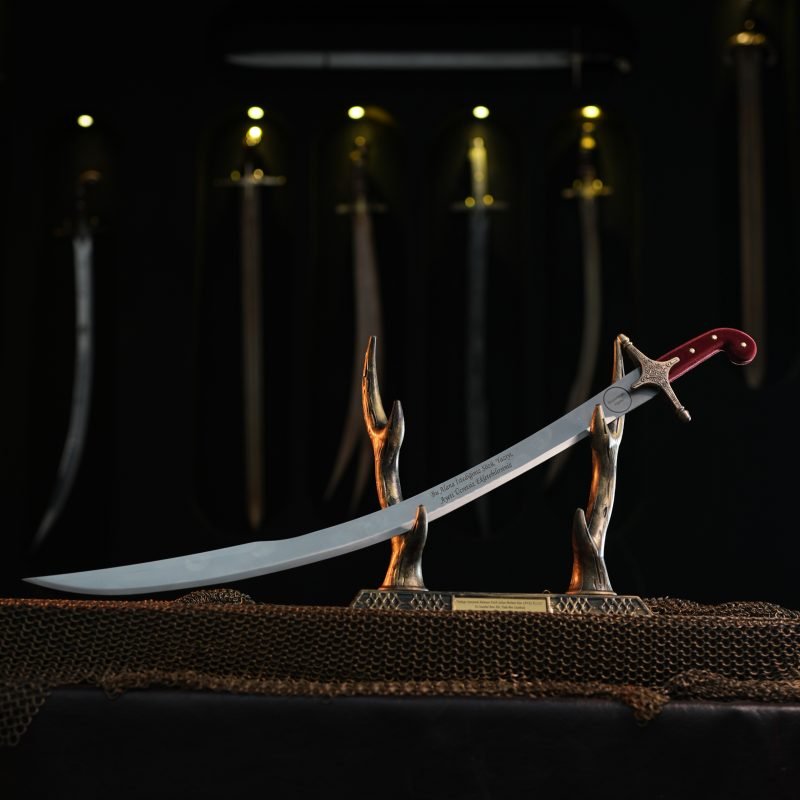Is it Legal to Own a Sword ?
Swords have long captured the imagination as symbols of power, honor, and heritage. However, the question of whether it is legal to own a sword is not as straightforward as it may seem. In this comprehensive article, we delve into the complex landscape of sword ownership laws, examining historical contexts, legal restrictions, licensing requirements, and the cultural significance of owning a sword. Join us on a journey to uncover the intricacies of sword ownership regulations and explore the diverse facets of this age-old practice.
Overview of Sword Ownership Laws
In a world where the pen is mightier than the sword, it’s essential to understand the legal ins and outs of owning one. From ancient times to modern-day regulations, the status of sword ownership is a nuanced area of law that requires careful consideration.
Understanding the Legal Framework
Sword ownership laws vary widely depending on your location. Some places allow swords as collectibles or for ceremonial purposes, while others have strict regulations due to safety concerns. Knowing the legal framework in your area is crucial to avoid running afoul of the law.
Variances in Sword Regulations by Jurisdiction
Just like different sword styles, regulations can vary significantly by jurisdiction. What might be legal in one place could land you in hot water elsewhere. It’s essential to research and understand the laws specific to your area before embarking on any sword-related endeavors.
Historical Context of Sword Ownership
Swords have a rich history intertwined with power, honor, and warfare. Understanding the evolution of sword laws over time provides valuable insight into how societies have viewed these iconic weapons.
Evolution of Sword Laws Over Time
From being symbols of authority to instruments of war, swords have played various roles throughout history. As societal norms and values changed, so did the laws governing sword ownership. Tracing this evolution offers a glimpse into the cultural attitudes towards these weapons.
Cultural Significance of Swords
Swords have held significant cultural importance in various civilizations. Whether as a mark of honor, a tool for self-defense, or a status symbol, swords have left an indelible mark on human history. Understanding their cultural significance helps illuminate why regulations surrounding sword ownership can be complex.
Types of Swords and Legal Restrictions
Not all swords are created equal in the eyes of the law. Different types of swords may carry varying legal status based on their design, purpose, and historical context. Knowing the distinctions can help you navigate the legal landscape successfully.
Categorizing Swords by Legal Status
Swords can be categorized into different legal classes based on factors like blade length, sharpness, and historical significance. These classifications often determine whether a sword is considered a harmless decoration or a potential weapon under the law.
Prohibited Sword Features
Certain features of swords, such as double-edged blades or serrated edges, may be prohibited in some jurisdictions due to safety concerns. Understanding what features to avoid can help you stay on the right side of the law when it comes to sword ownership.
Licensing and Registration Requirements
In many places, owning a sword isn’t as simple as picking one up off the shelf. Licensing and registration requirements are common measures implemented to ensure responsible ownership and prevent misuse of these powerful weapons.
Process for Obtaining a Sword License
Obtaining a license to own a sword often involves meeting specific criteria, such as background checks or training requirements. Understanding the process can help you navigate the legal channels smoothly and legally acquire the sword of your dreams.
Registration of Swords with Authorities
Some jurisdictions require sword owners to register their weapons with the authorities to maintain a record of who possesses these potentially dangerous items. Compliance with registration requirements is essential to avoid legal repercussions and ensure responsible ownership.
Importing and Exporting Swords
International Laws on Sword Imports and Exports
When it comes to importing and exporting swords, it’s essential to check the international laws governing these transactions. Different countries have varying regulations on the import and export of swords, so make sure you’re aware of these rules before shipping your prized blade across borders.
Customs Regulations and Documentation
Navigating customs regulations and documentation is crucial when dealing with swords. Customs authorities often require specific paperwork, such as permits or certificates, for the import or export of swords. Make sure you have all the necessary documentation in order to avoid any hiccups along the way.
Restrictions on Carrying Swords in Public
Open and Concealed Carry Laws
Carrying a sword in public is no small matter. Laws on open and concealed carry of swords vary by location, so it’s important to familiarize yourself with the specific regulations in your area. Whether you’re sporting a samurai sword or a medieval broadsword, make sure you’re on the right side of the law.
Exceptions for Historical Reenactments and Performances
While carrying a sword down Main Street might raise a few eyebrows, there are exceptions for historical reenactments and performances. If you’re donning your sword for a medieval festival or a theatrical production, you may be exempt from certain carry restrictions. Just remember to leave the stage combat to the professionals!
Legal Consequences of Unauthorized Sword Ownership
Penalties for Illegal Sword Possession
Getting caught with an unauthorized sword can lead to some serious consequences. Penalties for illegal sword possession can range from fines to jail time, depending on the severity of the offense. Make sure you’re well-versed in the laws surrounding sword ownership to avoid any legal entanglements.
Confiscation and Disposal Procedures
If your sword is deemed illegal or prohibited, be prepared for confiscation and disposal procedures. Authorities may take away your beloved blade, never to be seen again. To prevent this heartbreaking scenario, ensure your sword ownership is above board and in compliance with the law.
Cultural and Recreational Aspects of Sword Ownership
Role of Swords in Martial Arts and Sports
Swords aren’t just for swinging wildly in epic battles—they also play a significant role in martial arts and sports. From kendo to fencing, swords are integral to various disciplines that require precision, skill, and discipline. Embrace the cultural and physical aspects of sword ownership by exploring these practices.
Sword Collecting and Displaying Practices
For the aficionados of historical weaponry, sword collecting and displaying are cherished pastimes. Whether you’re a fan of Japanese katana or European rapiers, showcasing your collection can be a source of pride and fascination. Just be sure to adhere to any local regulations on displaying swords in your home or public spaces.
As we conclude our exploration of the legality of sword ownership, it becomes evident that the possession of such iconic weapons is subject to a myriad of regulations and considerations. Whether for historical reenactments, martial arts training, or personal collection, understanding and abiding by the relevant laws is paramount. By respecting the legal framework surrounding sword ownership, enthusiasts can continue to appreciate these timeless artifacts while upholding societal safety and responsibility. In a world where tradition meets modernity, the ownership of a sword is not merely a privilege but a commitment to honor the past while navigating the present with integrity.
Frequently Asked Questions
1. Are there specific types of swords that are illegal to own?
2. Do I need a license to own a sword for decorative purposes?
3. Can I carry a sword in public for self-defense?


